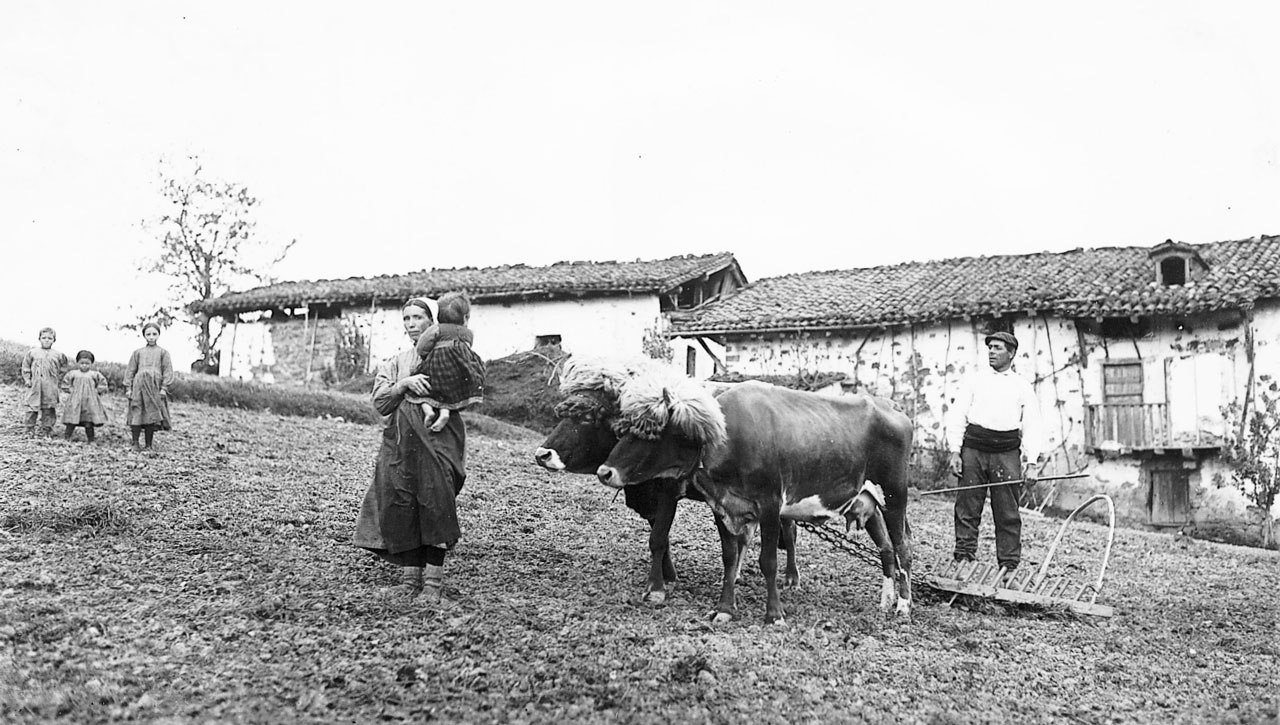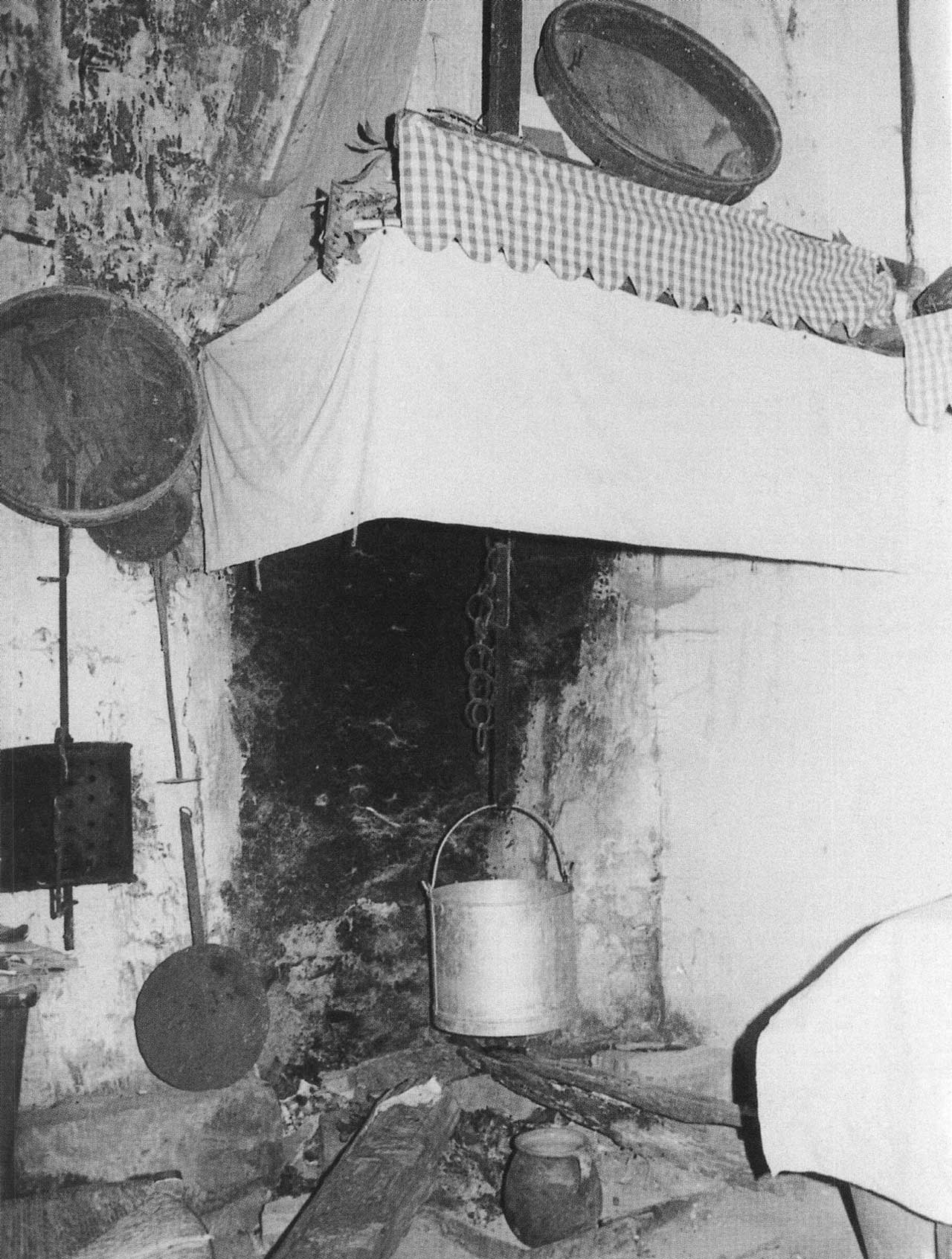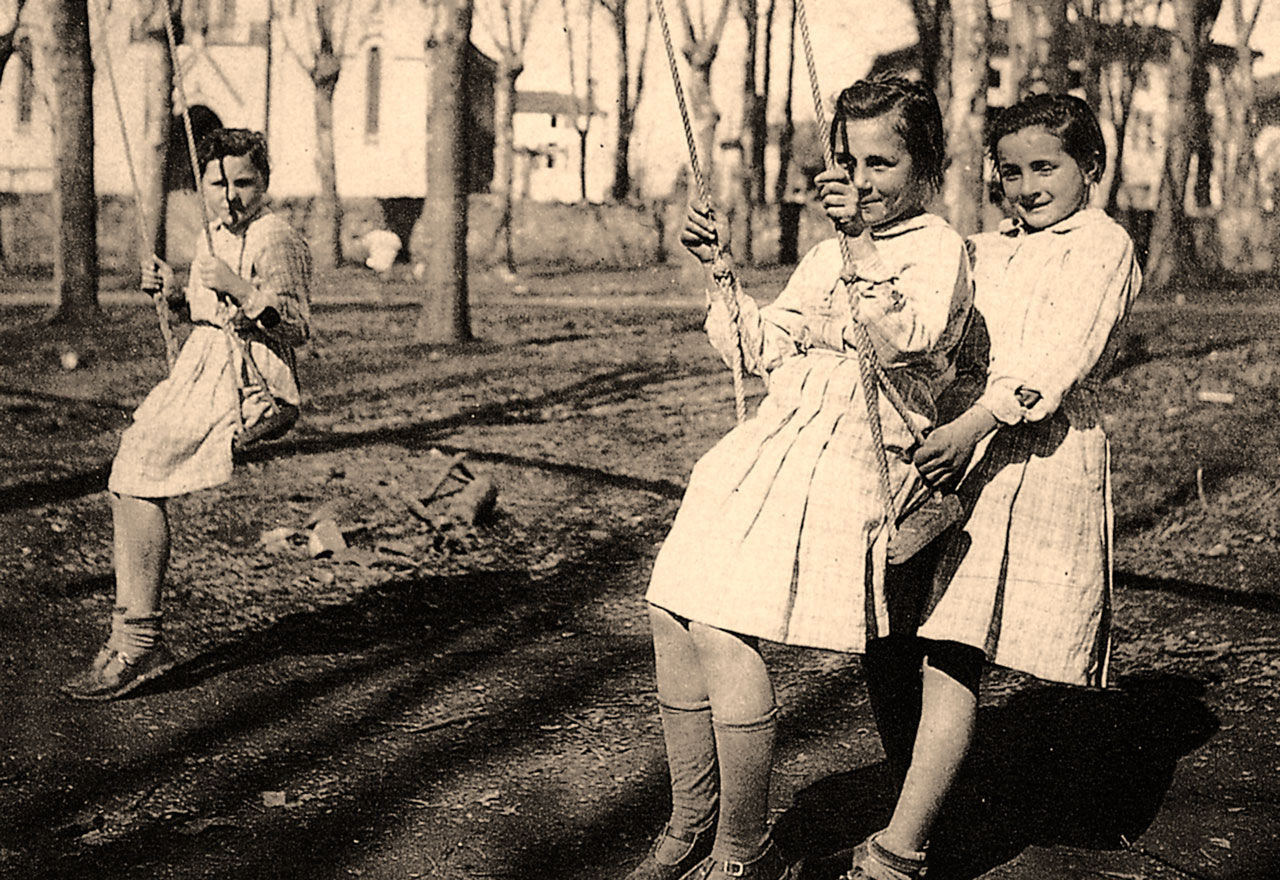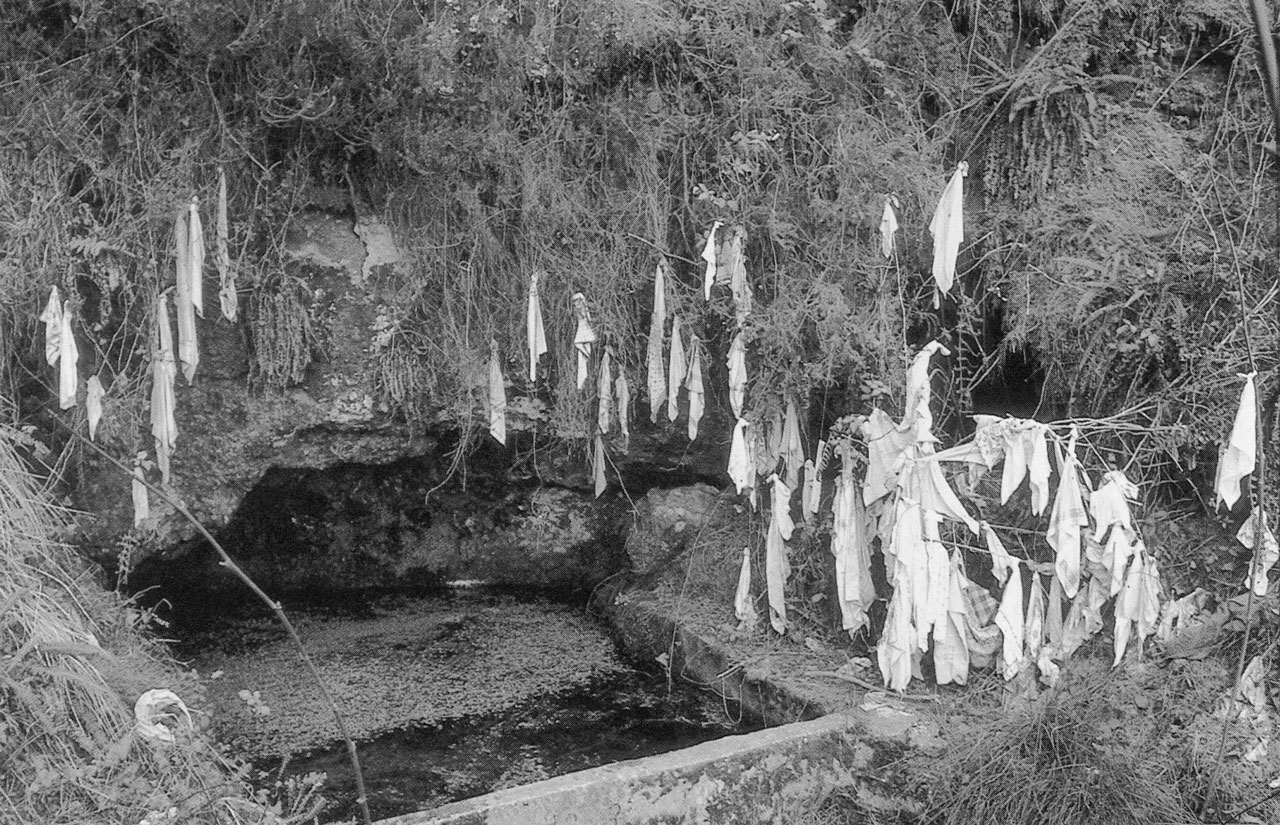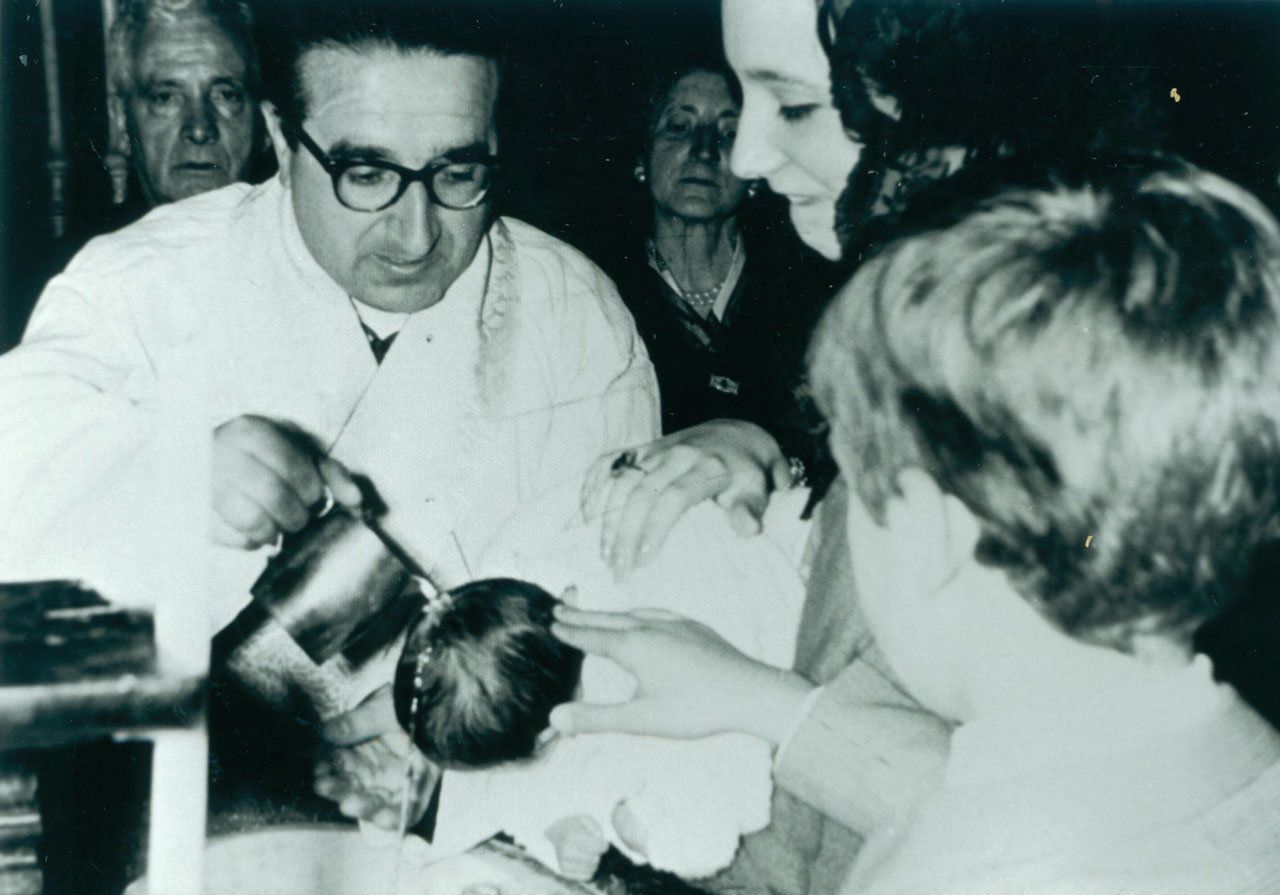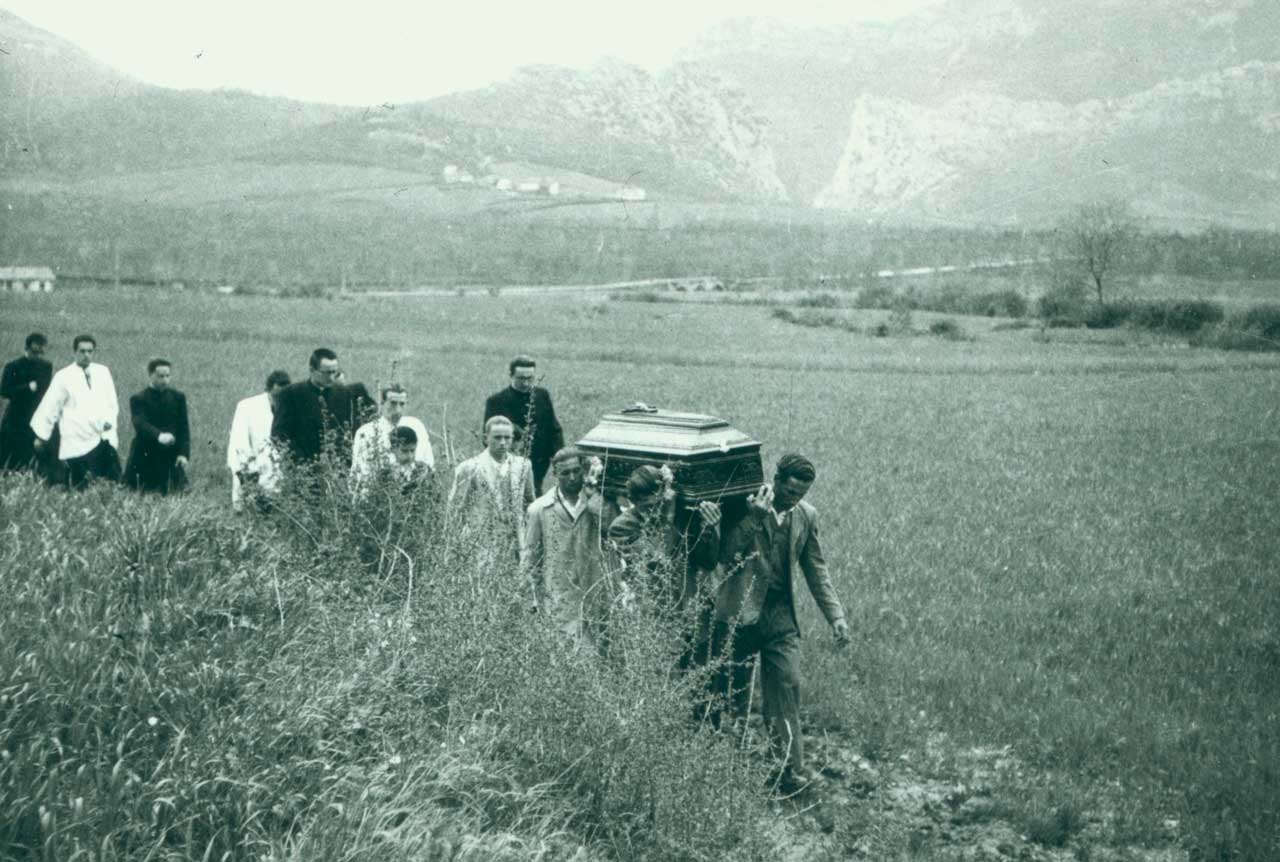Diferencia entre revisiones de «Main Page/en»
De Atlas Etnográfico de Vasconia
(Página creada con «====[/atlas/agricultura/Siega-de-trigo-Gesaltza-1950.jpg|Wheat harvest. Gesaltza (G), c. 1950. Source: Municipal Archive of Vitoria-Gasteiz: Enrique Guinea Collection.|Sats...») |
|||
| Línea 2: | Línea 2: | ||
<languages /> | <languages /> | ||
| − | |||
| − | |||
{{DISPLAYTITLE: Ethnographic Atlas of the Basque Country}} | {{DISPLAYTITLE: Ethnographic Atlas of the Basque Country}} | ||
Revisión actual del 16:55 11 mar 2020
Mutual cooperation. Zeanuri (B), c. 1915. Source: Labayru Fundazioa Photograhic Archive: Felipe Manterola Collection.
House and Family in the Basque Country


House and Family in the Basque Country
The rural farmstead was an institution made up of the building, its land, its dwellings and by tradition, in other words, by that web of relations that closely links the current generation with past ones.
Family Diet in the Basque Country


Family Diet in the Basque Country
Sueteko laratzak jakiten dau etxeko barri. People show their true colours at home.
Children’s Games in the Basque Country


Children’s Games in the Basque Country
Sirrin-sarran, domini pan, zure semea errotan, errota txiki, errota handi, eragin deutso, pin-pan.Children’s chant
Traditional Medicine in the Basque Country


Traditional Medicine in the Basque Country
Nolako gaitza, halako erremedioa. There’s a cure for everything.
Rites from Birth to Marriage in the Basque Country


Rites from Birth to Marriage in the Basque Country
After giving birth, women would remain confined for a period that ended with the rite of being churched, elizan sartzea.
Funeral Rites in the Basque Country


Funeral Rites in the Basque Country
Dying on a rainy day or if it rained after the death showed that the soul would be saved: gorputz ona, euritsu.
Livestock Farming and Shepherding in the Basque Country


Livestock Farming and Shepherding in the Basque Country
The priority of the right of herds to cross arable land is expressed in the sentence: soroak zor dio larreari ‘arable land is indebted to grassland’.
Agriculture in the Basque Country


Agriculture in the Basque Country
Flax fields and market gardens were the areas of the farm that required the greatest care, the pride of the farmer’s property and a cornerstone of the family’s wealth.
